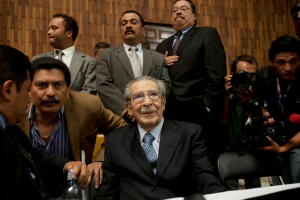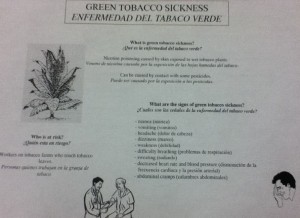10 May 2013:
Over thirty years after the Scorched Earth campaign by the military and death squads in Guatemala, General Efrain Rios Montt is convicted of genocide committed against the Mayan’s of the Ixil region. Like the notorious Chilean dictator, Augusto Pinochet, Montt (86 years old) was brought to trial late in life – however, the distinction of having been forced into the courtroom, despite legal defense attempting to waylay the inevitable, is what stands between the two notorious figureheads. Montt’s sentence of 80 years in prison stands as a penalty for the crime versus a punishment he can withstand. This precedent setting national conviction will serve as a warning to both heads of state and top ranking military officials that impunity, even in the most stratified of countries, can be challenged.
Filmmakers Pamela Yates and Paco de Onis (When the Mountains Tremble and Granito) were on hand for both the filming of the trial as well as witnessing their own footage used as evidence in the closing remarks against Montt. A great collection of daily summaries from the trial can be seen in their ongoing film series Dictator in the Docket. Though the conviction has happened, the greivances still exist for the crimes committed in Guatemala. With this piece of history, a social dialogue can begin to unpack the roots of an extermination campaign against indigenous peoples and their corresponding position in society today.


